Actually, a glass of a low-alcohol, dry, red wine a day, preferably at lunch, as part of a healthy, well-balanced diet may enhance weight loss. Polyphenols, resveratrol, and melatonin help control appetite, increase energy expenditure and improve insulin sensitivity. Even low amounts of alcohol can play a beneficial role in glucose metabolism!
Keep in mind that higher amounts of wine have the opposite effects. Overconsumption can lead to obesity.
How many calories?
A glass of wine has 125 calories on average. About 87% of them come from alcohol. A serving of wine (5 oz) has about 1 gram of sugar and 15 grams of alcohol.[1]
Alcohol has 7 calories per gram. It contains more calories per gram than carbs and protein, which contain only 4 calories per gram.
Here’s a list of the calorie content per 5-ounce serving for some popular wine varieties:
| Wine Variety | Calories (per 5 oz) |
|---|---|
| Champagne/Sparkling | 96 calories |
| Sauvignon Blanc | 122 calories |
| Pinot Grigio | 122 calories |
| Merlot | 122 calories |
| Malbec | 86 calories |
| Marsala | 117 calories |
| Moscato | 100–140 calories |
| Mulled Wine | 107 calories |
| Non-Alcoholic Wine | 15 calories |
| Pinot Noir | 115 calories |
| Plum Wine | 106 calories |
| Port Wine | 154 calories |
| Prosecco | 91 calories |
| Riesling | 115 calories |
Thus, you should avoid drinking beverages with a high alcohol content if you want to lose weight.
Moreover, you should avoid drinking wine with extra sugar. Sweet dessert wines have about 235 calories per 5 oz. Almost twice the calories of red wine!
Thus, drinking too much wine can make you gain weight.
Why do wines have a different calorie content?
Wine calories can vary due to several factors.
The primary contributor to wine calories is alcohol. Alcohol contains seven calories per gram, which adds up quickly. Wines with higher alcohol content will naturally have more calories.
Sugar also contributes to wine calories. Some wines contain residual sugars, while others are dry. Sweet wines, like dessert wines, tend to have more calories due to their sugar content.
Wines labeled as dry have minimal residual sugar, while off-dry or sweet wines have more! Opt for lower-alcohol, dry wines if you’re mindful of calorie intake.
Keep in mind that white wine generally has fewer calories compared to red wine. The fermentation process and grape varieties influence this difference. Red wines often have more residual sugars and higher alcohol content.
Moreover, winemakers can influence calorie content through techniques like fortification (adding spirits) or late harvest (harvesting grapes at peak sweetness), which greatly impact sugar and alcohol levels.
Additionally, each grape varietal has unique characteristics. Some produce wines with higher sugar levels, affecting calorie content. For example, Moscato tends to be sweeter and higher in calories.
How much can I drink for Weight Loss?
The standard serving size for wine is 5 ounces. Larger servings mean more calories. Be mindful of portion sizes. A glass a day as part of a well-balanced diet won’t make you fat, though.
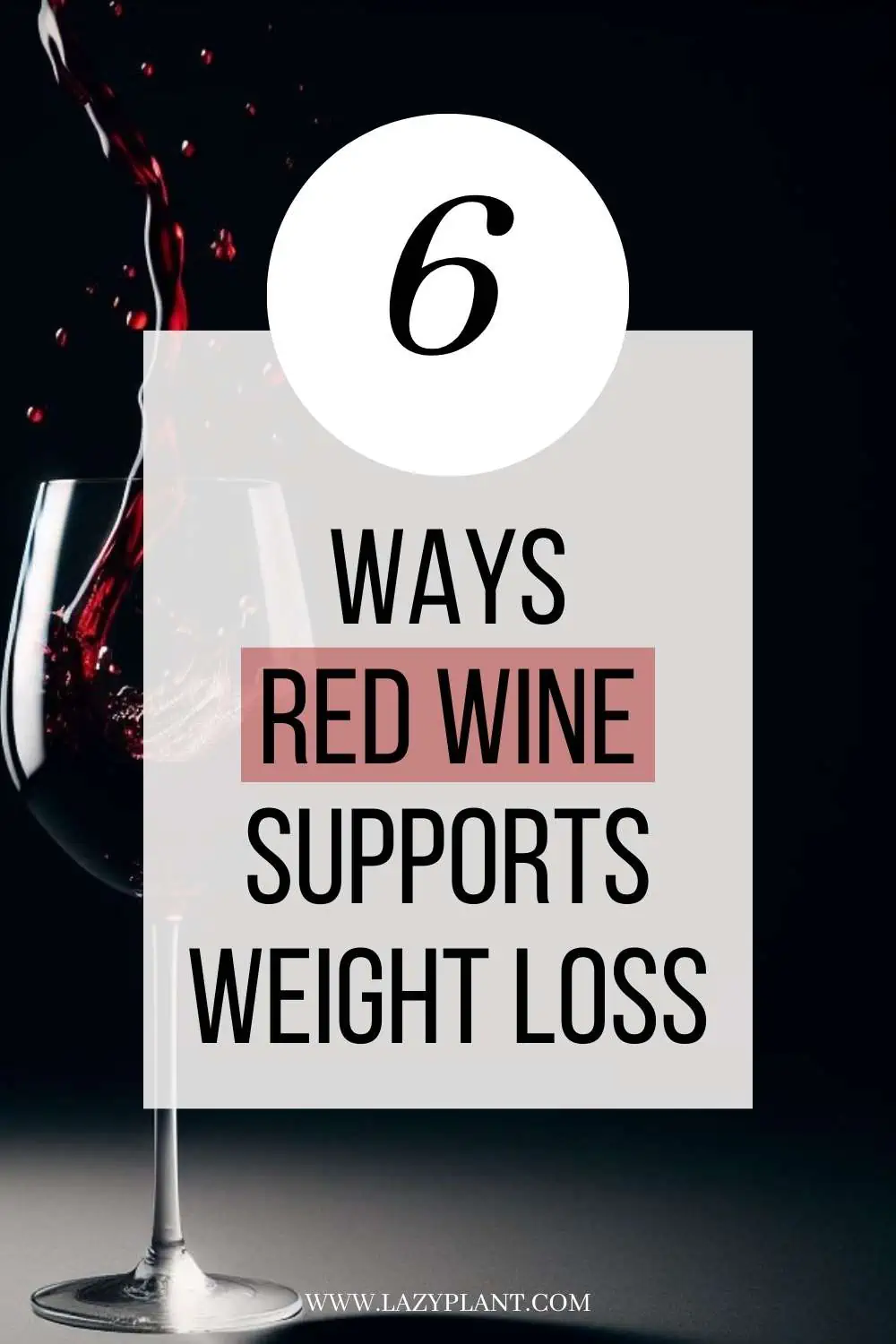
A glass of wine a day can help you lose weight
Actually, according to many studies, drinking a glass of wine, as part of a hypocaloric diet, is beneficial for weight loss. Above all, we should limit our calorie intake from wine to 10% of the total energy intake.[2]
It seems that moderate red wine consumption can control energy intake. It helps us consume fewer calories! Alcohol influences a number of hormones that regulate satiety, such as leptin.[3,4]
Moreover, red wine seems to have a prebiotic effect. Polyphenols in red wine can positively modulate gut microbiota and increase their diversity, helping deal with obesity and other metabolic diseases.[5,6]
Furthermore, red wine is rich in chromium. This trace element reduces cravings for fattening food and promotes weight loss!
According to a study among 19,220 women which lasted for almost 13 years, those who consumed a light amount of alcohol had a lower risk of becoming overweight or obese, as compared to nondrinkers.[7]
Another study among 15,920 women also, showed that light or moderate drinkers are less likely to gain weight over time.[8]
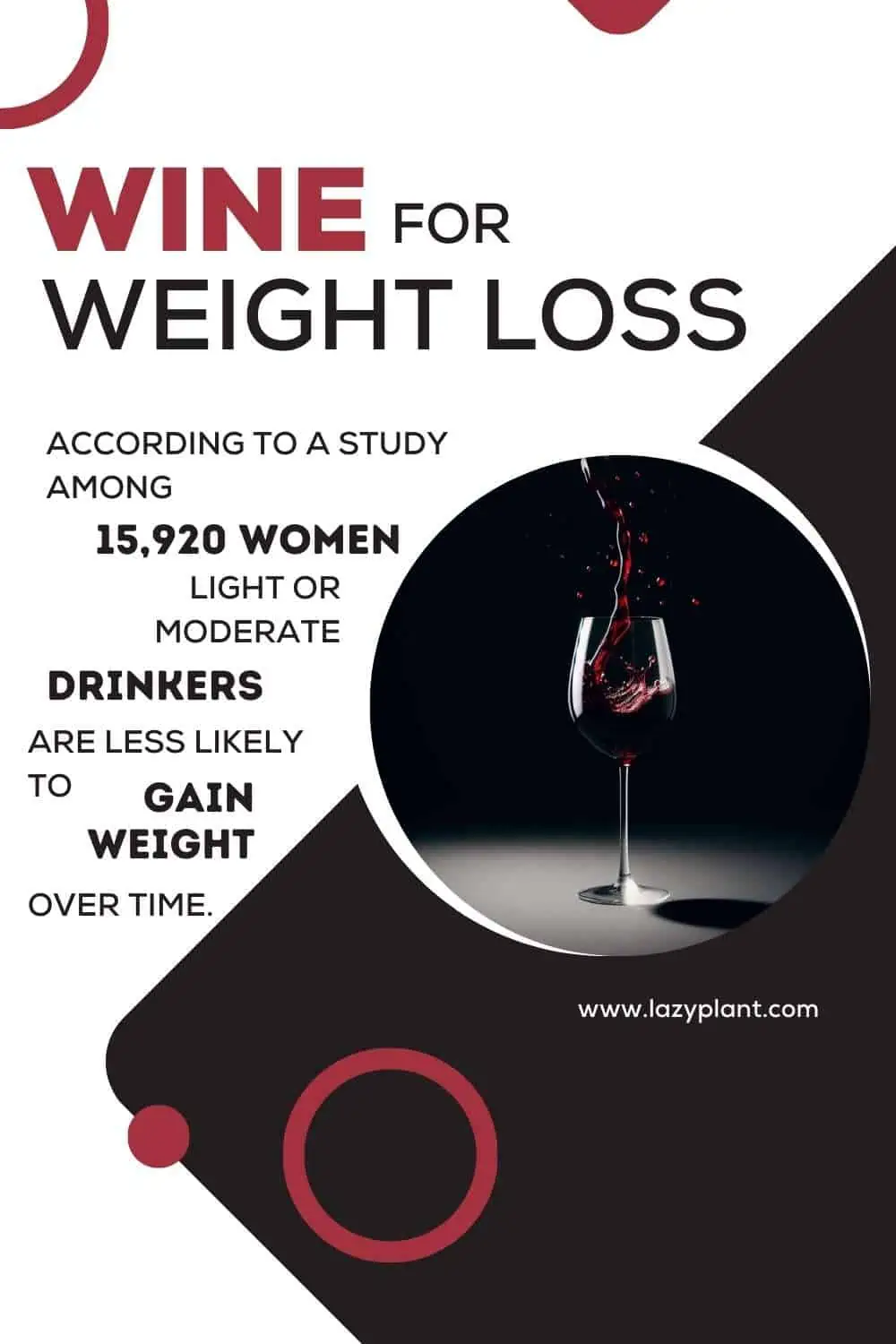
Resveratrol in red wine promotes weight loss
Also, wine is a good dietary source of resveratrol. Resveratrol is a polyphenol with potent antioxidant properties. High doses of resveratrol significantly decrease body weight, Body Mass Index (BMI), fat mass, and waist circumference. Also, resveratrol significantly increases lean body mass![9,10]
In fact, grapes enhance weight loss, due to their high resveratrol content. Other common foods rich in resveratrol are berries and peanuts.
Furthermore, resveratrol controls blood sugar levels and improves insulin sensitivity. Obesity is strongly associated with the development of insulin resistance and higher levels of blood sugar, which may also lead to cardiovascular and metabolic diseases.[11,12]
Moreover, resveratrol may increase metabolism and decrease fat mass! Resveratrol plays a key role in the transformation of white adipose tissue (fat) to brown adipose tissue, which significantly increases energy expenditure, and regulates glucose and lipid metabolism. Garlic promotes weight loss, as it activates brown adipose tissue as well.[13,14]
Also, resveratrol in red wine might help you sleep better at night. A bad night’s sleep has been strongly linked to obesity. Actually, a glass of wine at dinner may help you sleep better at night. Dinner should be a couple of hours before bedtime, though.
But, only red wine is high in resveratrol, containing up to 1.97 mg of resveratrol per liter. White and rosé wines have significantly lower concentrations.
Besides grapes, peanuts, blueberries, and raspberries are excellent dietary sources of resveratrol as well.
You can also skyrocket your daily intake from supplements. You can find a wide variety at unbeatable prices on iHerb.
Wines high in melatonin are best for weight loss
Drinking wines rich in melatonin could further enhance weight loss because this powerful hormone helps regulate glucose levels and appetite. Also, it may lower LDL-cholesterol and triglycerides in obese people.
Actually, Merlot, Malbec, and Sangiovese cultivars are among the best natural sources of melatonin, Merlot wine being the richest.
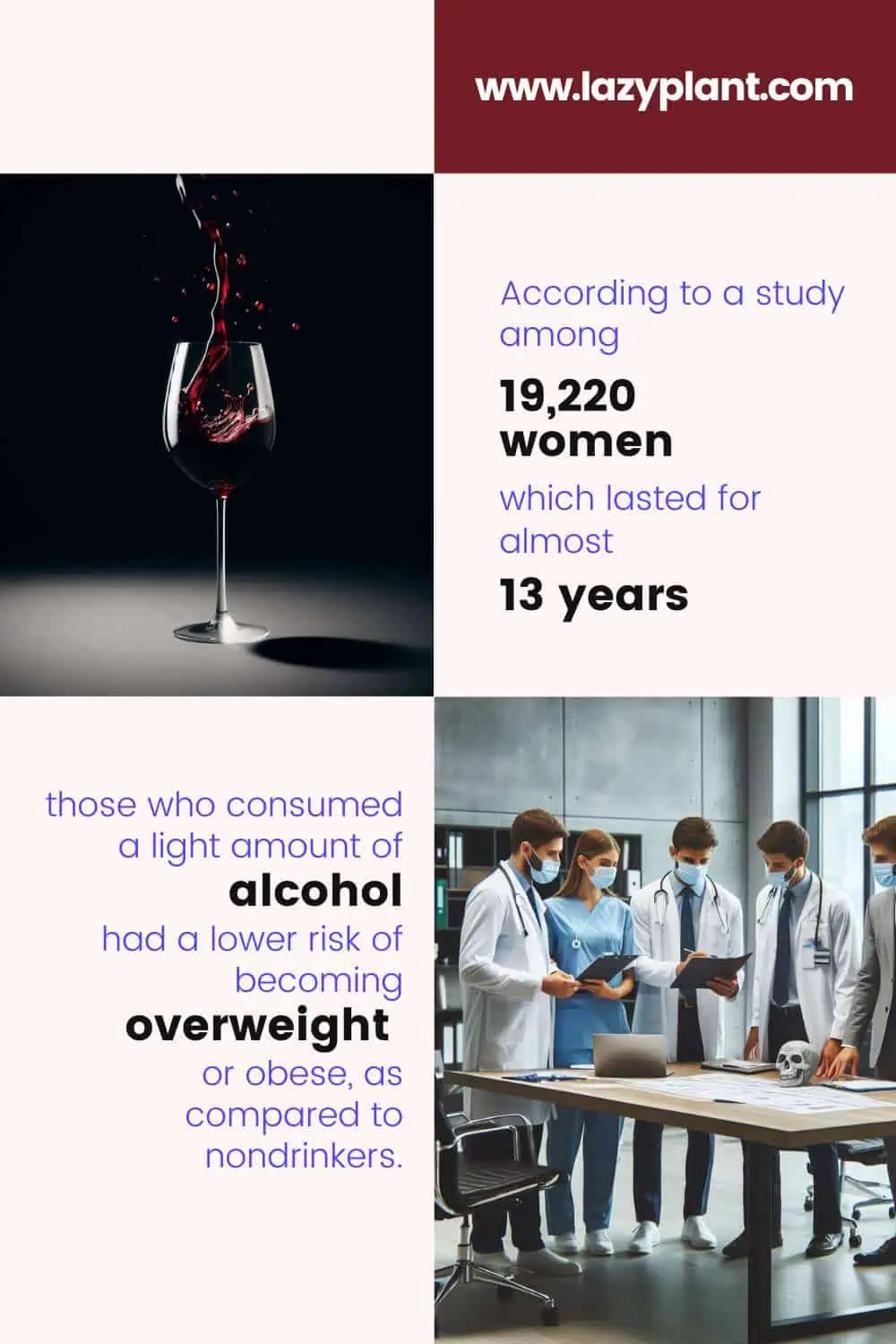
Red wine controls blood sugar & insulin
Furthermore, moderate alcohol consumption may reduce the risk of type 2 diabetes, due to improved insulin sensitivity and lower blood sugar levels.[15,16]
Besides alcohol, red wine is rich in polyphenols, which also contribute to decreased insulin resistance. In fact, red wine is considered the best alcoholic beverage for protecting your heart.[17]
Red or White wine for Weight Loss?
Both red and white wines have similar calorie content. Red wine offers additional health benefits due to its antioxidants, like resveratrol.
The best choice for weight loss as well as health is red wine, but you could enjoy white wine if you prefer it. Some people may find white wine more satisfying or less likely to trigger overeating.
But be always mindful of portion sizes and overall calorie intake. You should manage your overall relationship with alcohol.
Drink a glass of red wine a day for a lean body
We shouldn’t drink more than 1–2 glasses of wine a day, though. Too much alcohol has negative effects on glucose and insulin levels.
Obesity is strongly associated with insulin resistance and higher blood sugar levels.
Actually, a low dose of alcohol can increase testosterone levels.[18]
On the contrary, heavy alcohol consumption results in reduced testosterone levels.[19]
High testosterone levels are associated with a lower fat percentage in the body and increased lean mass!
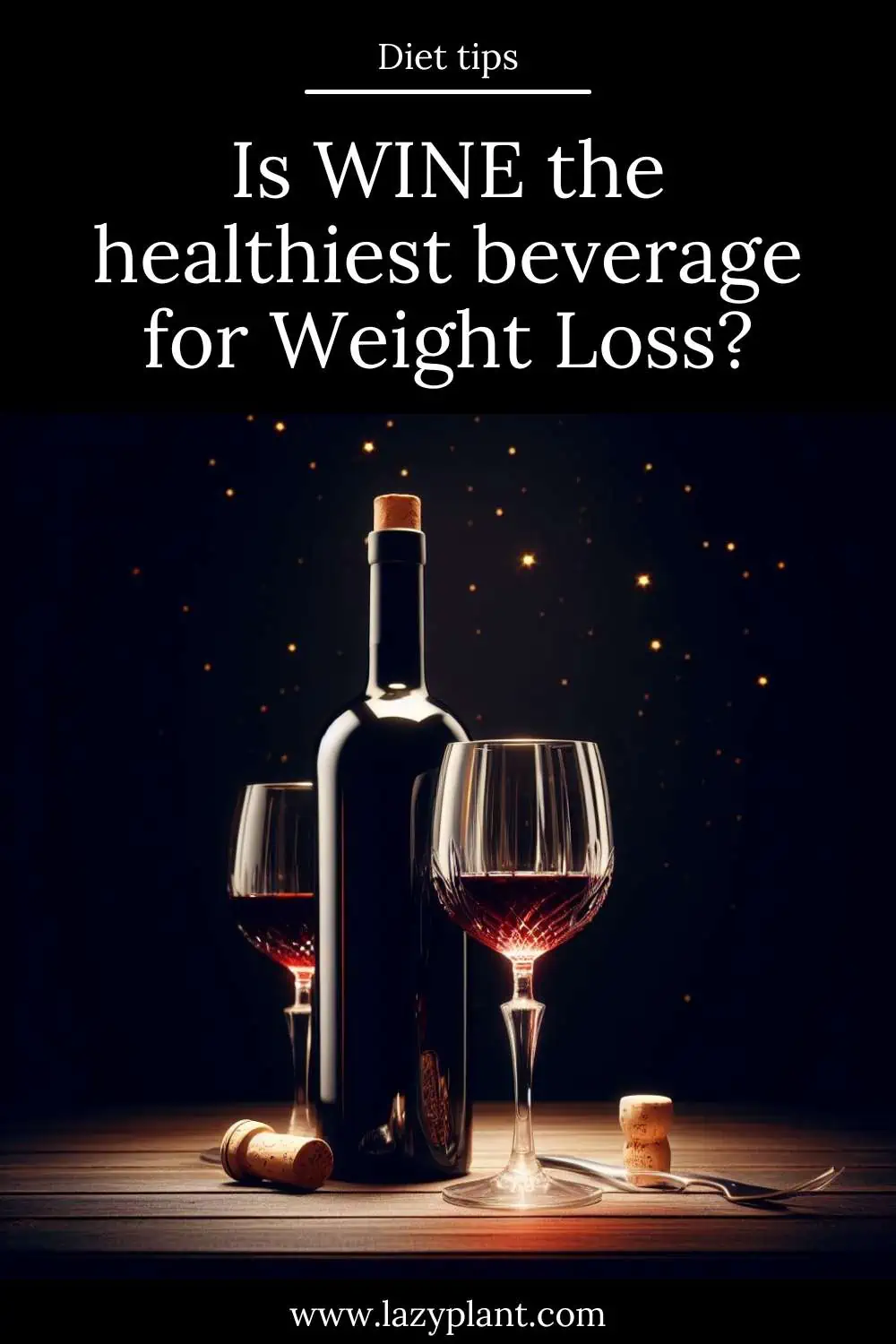
Moreover, reasonable amounts of red wine as part of a healthy diet can play a beneficial role in immunity. Wine may even protect from the common cold or the flu! Thus, you can be more active year-round. Moderate exercise is also key for a lean body. Especially if endurance and resistance training are combined.
Why certain individuals can drink more than others?
Your body processes alcohol differently based on your genetics. Enzymes involved in alcohol metabolism vary among individuals. Factors such as gender, age, body size, and genetic makeup influence how quickly your body eliminates alcohol.
When can Wine make me fat?
Alcohol can cloud your judgment, leading to unhealthy food choices. Alcohol can stimulate appetite. Pairing wine with high-calorie snacks can sabotage weight loss efforts.
When you drink wine, your body prioritizes breaking down alcohol, temporarily slowing down fat burning. Alcohol metabolism takes precedence over other metabolic processes.
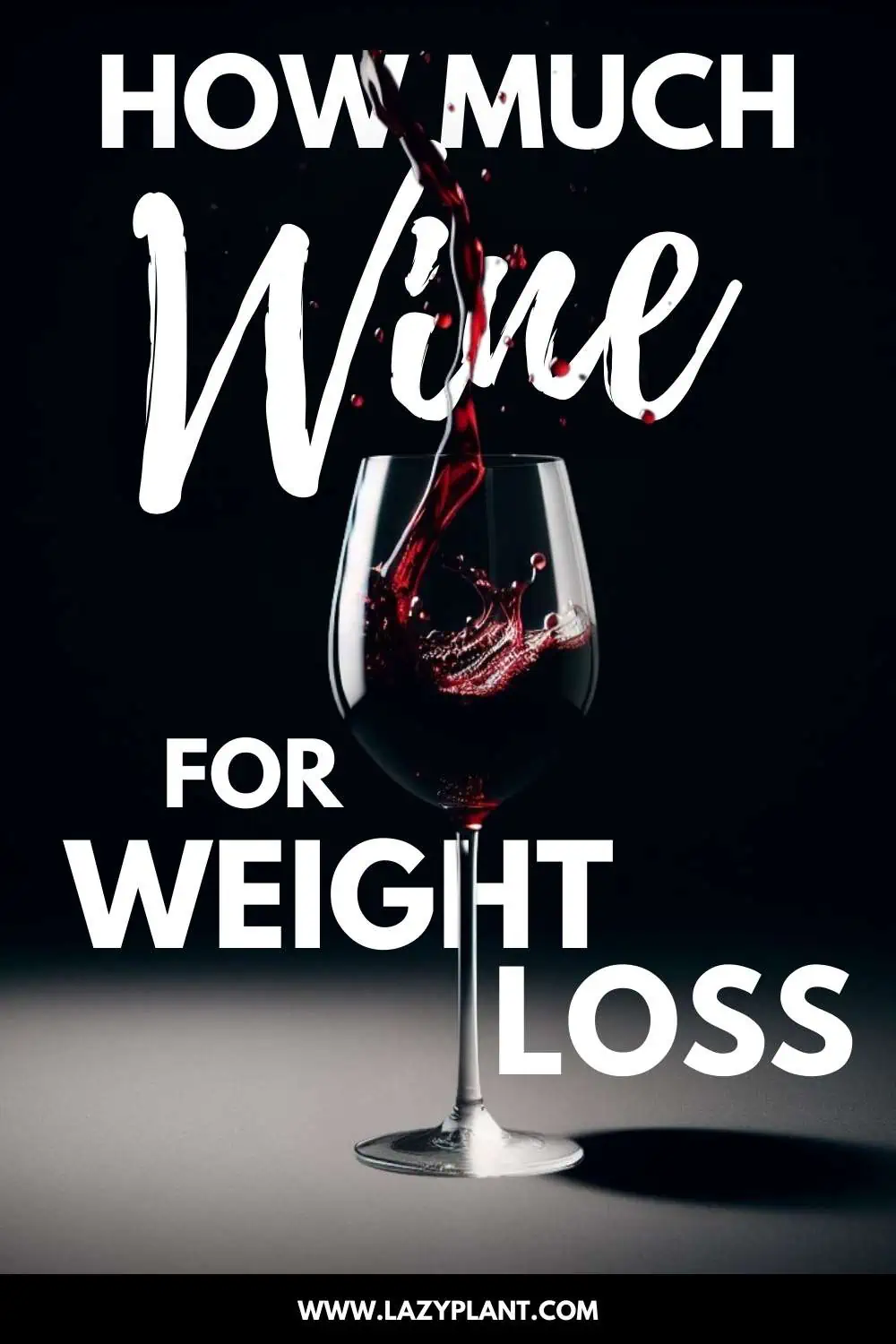
The liver processes alcohol, and excessive consumption can strain it. A stressed liver affects overall health, including weight management.
Wine is often consumed during social events or dinner, which can lead to a high-calorie intake. Late-night eating is associated with weight gain.
How to drink less Wine in Social situations?
Pay attention to situations or emotions that trigger your desire to drink. Recognize these cues and find alternative ways to cope without alcohol. Explore mocktails, sparkling water, or alcohol-free beer. Having a non-alcoholic option in hand can reduce the pressure to drink alcohol.
When others encourage you to drink, have a polite and firm response ready. You can just say, “No” or opt for a non-alcoholic alternative.
If you end up drinking more than planned, don’t be too hard on yourself. Acknowledge it, learn from it, and move forward with your goals.
It’s okay to enjoy social situations without excessive alcohol. You can still have fun and connect with others while making mindful choices.
Tips to minimize Alcohol consumption
Here are some practical tips to help you drink less alcohol:
- Designate specific days each week when you completely abstain from alcohol. This helps break the habit and reduces overall consumption.
- Be mindful of how many drinks you’ve had. Set a limit and stick to it.
- Take breaks between alcoholic beverages. Sip slowly and savor the taste. This prevents rapid consumption.
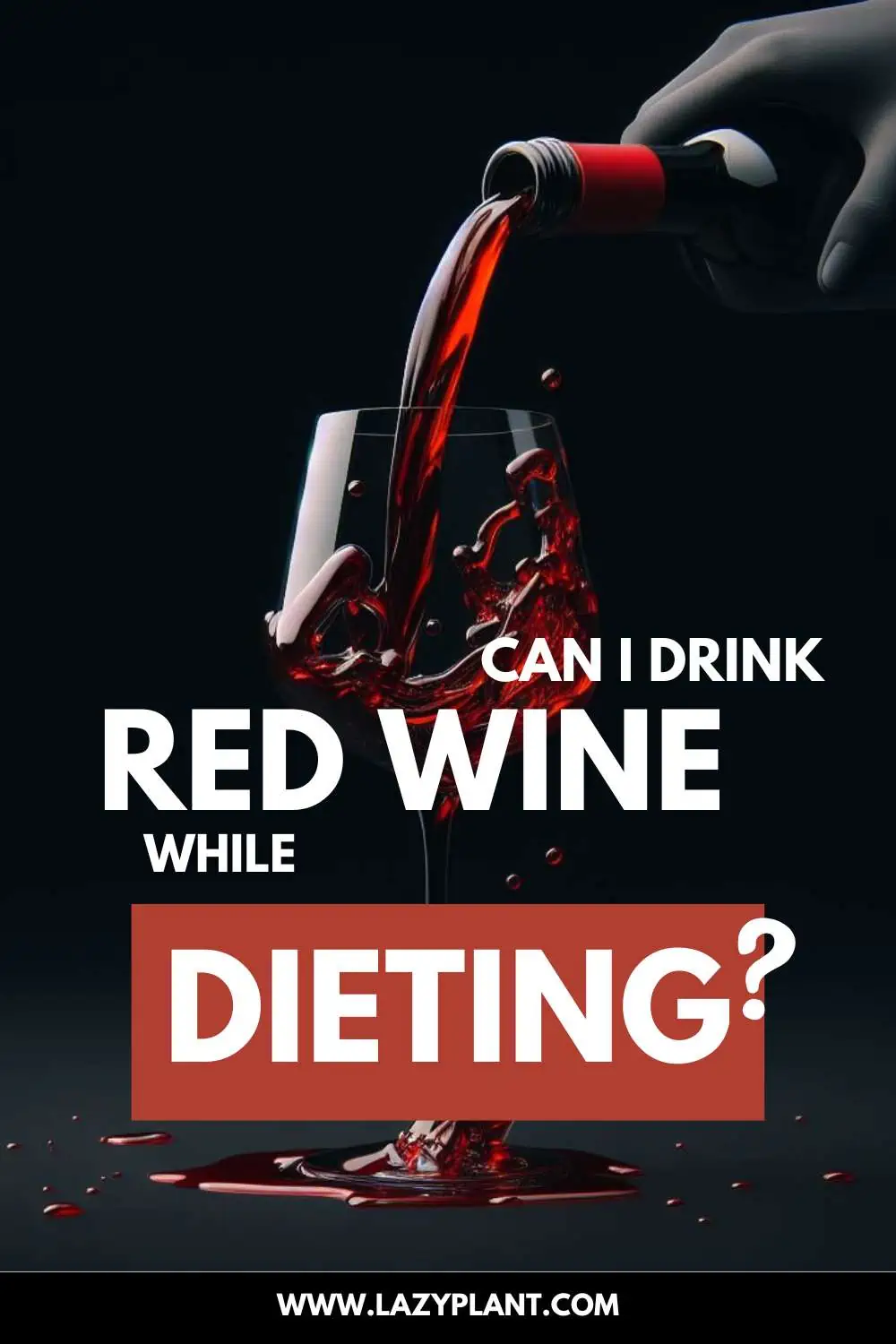
- For every alcoholic beverage, have a glass of water. This slows down alcohol consumption and keeps you hydrated. Only a well-hydrated body burns body fat effectively. Don’t drink juices or any other beverage high in sugar if you’re on a diet. Liquid calories are one key factor for obesity!
- Understand what constitutes a standard drink. This awareness helps you gauge how much alcohol you’re consuming.
- If you have alcohol readily available, you’re more likely to drink. Limit the amount of alcohol in your home to reduce temptation.
What’s the best time of the day to drink wine for weight loss?
The best time of the day to drink a glass of red wine for weight loss is at lunch. Avoid drinking wine right before bed. Although resveratrol in red wine supports a good night’s sleep, alcohol in wine causes regular night awakenings, due to snoring or apnea.